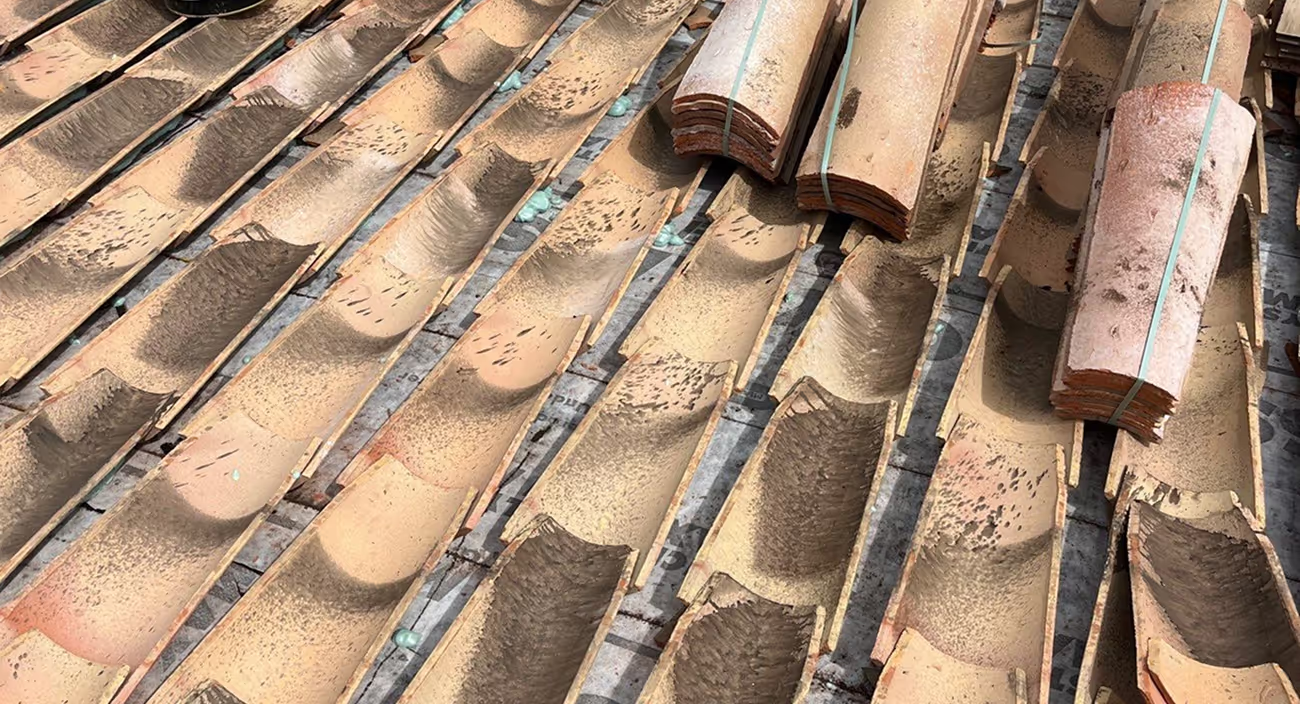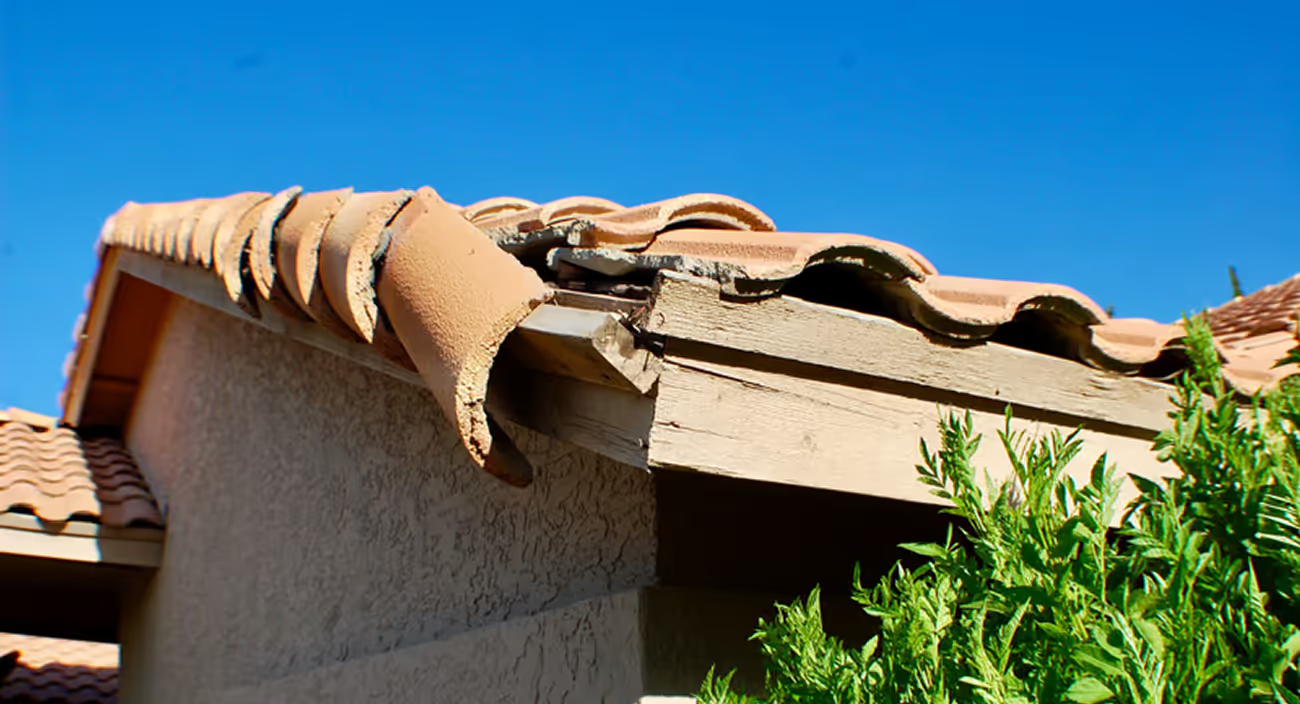Do You Need a Roof Permit in Jupiter, FL? What Homeowners and Contractors Must Know
.svg)

If you’re planning a roof repair or replacement in Jupiter, FL, you almost certainly need a building permit. Under the Florida Building Code and the Town of Jupiter’s requirements, re-roofs and most repairs beyond minor patching must be permitted and inspected to verify proper underlayment, flashing, fasteners, and wind-resistance details suitable for our coastal wind-borne debris region. Skipping permits can trigger stop-work orders, fines, failed inspections, insurance complications, warranty voids, and delays when refinancing or selling your home.
This step-by-step guide explains how to determine when a permit is required, typical thresholds that trigger permitting, expected costs and timelines, HOA/ARC approval sequencing, forms and submittals you’ll need, required inspections from start to final, penalties for non-compliance, and how to hire a licensed roofing professional who can manage the process correctly with the Town of Jupiter Building Division. Whether you’re replacing an entire roof or planning a targeted repair, you’ll learn exactly how to stay compliant, avoid costly mistakes, and keep your project moving.
When a Roof Permit Is Required in Jupiter, FL
The Town of Jupiter follows the Florida Building Code and Palm Beach County standards. A roofing permit is required for most work that affects the roof covering, structure, or waterproofing of your home or building.
Permit typically required for:
- Complete roof replacement (shingle, tile, metal, or low-slope systems)
- Recover/overlay of an existing roof system
- Replacement of more than 25% of the roof covering within any 12-month period
- Structural repairs to decking, trusses, or rafters
- Installation or replacement of underlayment, flashing, or ventilation as part of replacement scope
- New skylights, solar tubes, mechanical or plumbing penetrations, or enlarging existing openings
- Storm-related repairs beyond minor patching
Work that may not require a permit:
- Small like-for-like repairs under 100 sq. ft. that do not alter structure or waterproofing
- Replacing a limited number of shingles or tiles for aesthetics only
- Gutter cleaning, debris removal, or other non-structural maintenance
Always verify exemptions with the Town of Jupiter Building Division before scheduling work to avoid delays or violations.
Where to Apply and What You’ll Need
Roof permits are issued by the Town of Jupiter Building Division. Applications can be submitted online or at the Building counter. Typical submittals include:
- Completed roofing permit application
- Notice of Commencement (required for projects over $2,500)
- Product approvals (Florida Product Approval/NOA) for roofing, underlayment, fasteners, and flashing
- Roof plan or sketch noting squares, slopes, materials, and drainage
- Wind design and fastening details per Exposure Category and FBC requirements
- Contractor license/insurance, or owner-builder disclosure
Permits, Forms, and Submittal Requirements in Jupiter
Preparing the correct permit type and complete documentation upfront is the fastest way to avoid review holds, rejections, and jobsite delays in Jupiter, FL.
Required Documents:
- Completed Town of Jupiter roofing permit application describing full scope (repair vs. reroof, material, squares)
- Roof plan or sketch showing slopes, squares, ridges/valleys, penetrations, flashing, and material transitions
- Florida Product Approvals (FL#) or Miami-Dade NOAs for roof covering, underlayment, fasteners/adhesives, vents, drip edge, and any skylights; include the specific installation method and wind zone details
- Fastening schedule or uplift verification meeting Florida Building Code and ASCE 7 requirements
- Contractor license/qualifier information plus proof of general liability and workers’ compensation (or valid exemption)
- Notice of Commencement for projects valued over $2,500, recorded before the first inspection
- HOA/ARC approval letter if your community requires architectural review
- Owner-Builder Disclosure Statement (only if the owner is acting as contractor for an eligible single-family residence)
- Deck re-nailing affidavit and sheathing repair plan; include secondary water barrier details where required
- Details for skylights, solar attachments, or new penetrations; structural letter if applicable
Application Process
Jupiter accepts roofing permits electronically. Submit clear, legible PDFs, keep product approvals together, and label files consistently to speed plan review.
- Create or log in to the Town’s online permitting portal and start a roofing permit application
- Select the correct permit type and enter an accurate job valuation
- Upload the required documents, pay intake fees, and monitor plan review comments
- Record the Notice of Commencement and post it with the permit card on site
- Keep approved plans on site for inspectors and follow your inspection sequence
Timelines, Fees, and HOA Coordination
Standard reroof permits commonly review in 3–10 business days, with longer timelines possible after major storms. Fees are typically based on job valuation with minimums and state surcharges; budget a few hundred dollars for most single-family reroofs and confirm the current schedule before you apply. Secure HOA approval early—many associations will not allow work to start without a stamped approval letter, even if the municipal permit is already issued.
Visit this page at the Town of Jupiter Building Department for the permit submission process.
Permit Fees, Review Timelines, and Inspections in Jupiter
Typical Costs and How Fees Are Calculated
In the Town of Jupiter, roof permit fees are generally based on a combination of a base application fee and a valuation-based amount tied to the total contract price. Expect separate charges for plan review and surcharges required by state law. Exact totals depend on scope (repair vs. full reroof), roof area, and materials.
Estimated residential ranges: Many homeowners see permit totals in the $150–$450 range for straightforward reroofs, with complex tile systems or large homes trending higher. Always verify the current schedule before you submit.
- Other potential costs include technology/portal fees, state surcharges, and reinspection fees if an inspection fails.
- Contractors typically pay these fees at issuance and pass them through on your invoice; ask that they be itemized.
How Long Approval Takes
For complete, code-compliant submittals, residential reroof permits in Jupiter often review in about 3–7 business days. During peak seasons or after major storms, plan for 7–15 business days. Applications with missing Florida Product Approvals or unclear scope descriptions are the most common sources of delay.
Ways to keep your review on track:
- Submit current Florida Product Approval numbers or Miami‑Dade NOAs for all roof covering, underlayment, fasteners, and flashing components. You can search approvals at Florida Product Approval.
- Ensure the contractor’s license, insurance, and registration with the Town of Jupiter are active and included with the package.
- Include a clear scope, roof squares, wind zone, and fastening schedule consistent with the Florida Building Code 8th Edition (2023) and local amendments.
Inspection Milestones and Scheduling
Most Jupiter reroofs require multiple inspections. A typical sequence includes:
- Dry‑in/underlayment or in‑progress fastener inspection to verify deck attachment, secondary water barrier (if applicable), and underlayment laps.
- In‑progress nailing/roof covering inspection for shingles, tile, metal, or modified systems, including required flashing details.
- Final inspection confirming terminations at eaves, rakes, valleys, vents, skylights, and penetrations, plus permit card sign‑off.
Schedule inspections through the Town’s portal by the posted cutoff (commonly mid‑afternoon) for next‑business‑day service when capacity allows. Be sure materials are on site, permit documents are accessible, and the roof is safe to access. Failed inspections can incur reinspection fees and delay final approval.
HOA Approvals, Code Compliance, and Penalties in Jupiter
Beyond permits and inspections, Jupiter homeowners and contractors must coordinate HOA approvals and follow Florida Building Code (2023) and Palm Beach County amendments to avoid costly delays and rework.
HOA and Community Association Requirements
Many Jupiter neighborhoods require an Architectural Review Committee (ARC) approval before the Town will accept or issue a roofing permit. Your HOA letter should confirm roof material and profile, color, underlayment type, and visible accessories (ridge vents, drip edge, flashing). Boards may meet weekly or monthly, so allow adequate lead time. HOA approval does not replace a municipal permit—submit both, and ensure the selected product is on the community’s approved list when applicable.
Penalties for Unpermitted or Non‑Compliant Roofing
Performing roofing work in Jupiter without an issued permit can trigger stop‑work orders, double permit fees, and mandatory destructive inspections. Code Enforcement may assess daily fines for continuing violations (commonly up to $250 per day for a first offense and $500 per day for repeats) and record liens if not corrected. Insurers can deny claims tied to unpermitted work, and open or expired permits can delay closings until resolved. For official requirements and current policies, consult the Town of Jupiter Building Division.
Compliance Tips to Pass Inspections
Plan your project around Jupiter’s typical inspection sequence and documentation needs. Confirm approved product listings (FL# or NOA) for coverings, fasteners, and underlayment that meet local wind design. After tear‑off, re‑nail the roof deck per FBC using 8d ring‑shank nails at code spacing, install the required secondary water barrier where applicable, and complete a compliant dry‑in prior to calling for the in‑progress inspection. Keep the permit card, product approvals, and recorded Notice of Commencement posted on site. Finish with a final inspection and ensure the permit is formally closed in the Town’s system.
Hiring Licensed Contractors: Verification Steps
Choose a state‑licensed roofer who routinely permits work in Jupiter. Verify licensure with the State of Florida, confirm active general liability and workers’ compensation coverage, and make sure the contractor of record—not the homeowner—pulls the permit. Ask for recent Jupiter references, confirm who schedules inspections, and require written scope, warranty, and permit close‑out in the contract. You can verify Florida licenses at the DBPR License Portal.
Hiring Licensed Roofers in Jupiter: Verification and Contract Steps
In Jupiter, FL, the safest way to keep your roof permit, inspections, and warranty on track is to hire a properly licensed roofing contractor who manages the entire compliance process from application to final approval. The contractor—not the homeowner—should pull the permit unless you are registered as an owner-builder and accept full legal responsibility.
How to Verify Licensing and Insurance:
Confirm the roofer holds an active Florida Certified or Registered Roofing Contractor license and a current local business tax receipt. Search the state database at Florida DBPR and verify the name, license number, status, and any discipline.
Request proof of general liability and workers’ compensation insurance. Ask for a certificate listing you as the certificate holder so you receive notice if coverage changes during the project.
Ask for recent Jupiter permit numbers and references. Choose teams who routinely work under the Florida Building Code’s wind uplift requirements and can provide Florida Product Approvals or Miami-Dade NOAs for all roof components they plan to install.
Contract and Permit Essentials:
Your agreement should state that the contractor will obtain the roof permit, post it on site before work starts, schedule all required inspections, and provide copies of approvals. It should also specify materials, underlayment type, fastener schedule, ventilation details, and the exact Florida Product Approval numbers.
Require a clear payment schedule tied to milestones, not just dates—for example, deposit at permit issuance, progress after dry-in approval, and final payment only after final inspection passes and closeout documents are delivered, including the recorded Notice of Commencement and lien releases from all suppliers and subcontractors.
Red Flags and Local Penalties:
Avoid anyone who offers to “skip the permit” or asks you to apply as the owner to save time or money. In Jupiter, this can trigger stop-work orders, double permit fees, fines, failed inspections, and potential removal and replacement of unpermitted work. Unlicensed contracting is a crime in Florida and can void insurance coverage.
To keep your project compliant and on schedule, Talbot Companies can coordinate permitting, HOA documentation, and inspections—partnering for reliable results and lasting value. Explore our roof replacement services or contact us before you sign.
Step-by-Step: Apply for a Jupiter Roof Permit
A clear application process helps Jupiter homeowners and roofing contractors avoid delays and stay compliant with Florida Building Code and local requirements. Use this workflow to move from pre-check to permit closure efficiently.
1. Confirm Jurisdiction and Property Records: Verify your address is within the Town of Jupiter. Properties in unincorporated areas are permitted through Palm Beach County. Confirm parcel number, legal description, and any flood zone considerations before you begin.
2. Define Scope and Valuation: Identify whether work is repair or full re-roof, note total squares, underlayment type, flashings, ventilation, skylights, and anticipated decking replacement. Declare an accurate job value for fee calculation and lien law compliance.
3. Gather Required Documents: Assemble a complete package: permit application, contractor license and insurance, owner authorization, HOA approval (if applicable), roof plan and slopes, wind design pressures, and product approvals (Florida Product Approval or Miami-Dade NOA) for roofing materials and accessories.
4. Record Notice of Commencement (If Required): When the contract value exceeds $2,500, record the Notice of Commencement with the county clerk before the first inspection and post it on site with the permit card.
5. Submit Online and Pay Intake Fees: Use the Town of Jupiter permitting portal to upload PDFs and pay intake fees. If the property is outside town limits, submit through Palm Beach County’s portal instead to avoid rejection.
6. Monitor Review and Address Comments: Track plan review status in the portal. Respond to each comment point-by-point, cloud and date any plan changes, and resubmit promptly to keep your review cycle moving.
7. Permit Issuance and Site Posting: After approval, print the permit, job card, and stamped plans. Keep them on site in a weather-protected location, visible from the right-of-way for inspectors.
8. Schedule Inspections in Sequence: Typical inspections include dry-in/underlayment, in-progress (nail pattern/deck repairs), and final. Schedule before covering work, have material packaging/labels available, and ensure safe roof access for inspectors.
9. Close Out and Keep Records: Verify the permit status shows “finaled/closed” in the portal. Retain approvals, warranties, affidavits, and inspection reports for insurance, refinancing, and resale.
Common Mistakes That Delay Approval
Avoid these issues that frequently trigger holds, denials, or re-inspections:
- Missing Florida Product Approvals or Miami-Dade NOAs for shingles, tile, underlayments, fasteners, adhesives, skylights, and vents
- Understated job valuation causing fee corrections and Notice of Commencement conflicts
- Skipping HOA approval letters when your community requires them
- No defined decking repair scope or sheathing fastening upgrades when needed
- Scheduling inspections after covering work, resulting in failed inspections or tear-offs
- Unlicensed or uninsured contractors, or missing workers’ compensation documentation
- Submitting to the wrong jurisdiction (Town of Jupiter vs. Palm Beach County)
Helpful Local Resources
Use these official resources to confirm current forms, fees, and inspection procedures:
Emergency Roof Work and Temporary Repairs in Jupiter
When storms strike, safety and immediate weatherproofing come first—but Jupiter still requires compliance with permitting rules. Temporary measures that prevent further damage are allowed, while permanent repairs and replacements must be properly permitted and inspected.
What You Can Do Immediately:
- Install non-invasive tarps, sandbag anchors, and temporary coverings to control active leaks
- Perform temporary dry-in using compatible underlayment over exposed decking without altering structural components
- Remove loose debris that creates fall hazards and secure loose flashing or ridge vents without permanent fastener changes
- Document conditions with date-stamped photos and save receipts for materials and labor to support permitting and insurance
Permit Follow-Up Requirements:
- Submit an emergency or standard roofing permit as soon as the Building Division is open—typically the next business day; avoid delays beyond a few days
- Provide the scope of temporary work performed, photos, and a plan for permanent repairs or replacement
- Use a licensed Florida roofing contractor and include license and insurance; owner-builders must complete required affidavits
- If trusses, rafters, or sheathing were damaged, include an engineer’s report with corrective details
Inspections You Should Expect:
- Dry-in inspection before underlayment or coverings are concealed
- In-progress inspection if sheathing is replaced or fastener patterns are modified
- Final inspection verifying materials, flashing, fastening, and wind uplift compliance
Do not perform permanent re-roofing—such as replacing shingles, tiles, or metal panels—without a permit. Temporary stabilization buys time, but Jupiter requires permitted, code-compliant work with inspections to close out the roof properly.
Final Close-Out: Pass Inspections, Secure Credits, Store Records
Closing out your Jupiter roof permit is more than a formality—it proves code compliance, protects you during a home sale, and unlocks potential insurance savings. Use this compliance-focused checklist to finish strong.
Inspection Readiness
Dry-In Complete: Ensure the underlayment, flashing, and penetrations are watertight and ready for the final inspection. Keep roof areas clean and accessible for the inspector.
Safe Access: Provide stable ladders, clear pathways, and site safety barriers. Remove debris and stage materials so the inspector can view the roof, drip edge, flashing, and attachment points.
Product Approvals On Hand: Have Florida Product Approvals or Miami-Dade NOAs for all roof coverings, underlayments, fasteners, vents, and adhesives that were installed.
Deck Attachment Evidence: Be prepared to show documentation or in-progress photos for roof deck nailing and required enhancements per the Florida Building Code and local wind-borne debris requirements.
Secondary Water Barrier (If Applicable): If a secondary water barrier was required or elected, provide receipts, product data, and photos verifying proper coverage and installation details.
Close-Out Documents
Final Roofing Affidavit: Many jurisdictions request a contractor affidavit confirming code-compliant installation per approved products and manufacturer specifications.
Product Approval Packet: Keep a compiled set of all FBC approvals/NOAs used on the project. Match the approvals to the exact models, sizes, and fastening schedules installed.
Notice of Commencement and Lien Releases (If Required): For projects that filed a Notice of Commencement, retain final lien releases from the roofer and major suppliers to protect against future claims.
Warranties and Care Plan: Collect manufacturer and contractor warranties, maintenance schedules, and cleaning guidelines to preserve coverage and extend service life.
HOA Compliance Records: If your HOA required pre-approval, keep the approval letter and any color/material confirmations with your permit close-out documents.
Insurance and Wind Mitigation Credits
Uniform Mitigation Verification (OIR-B1-1802): After reroofing, request a wind mitigation inspection by an eligible professional (licensed contractor, home inspector, engineer, architect, or building inspector) to complete the OIR-B1-1802 form.
Document Key Features: Ensure the inspection captures roof covering approval numbers, roof deck attachment, roof-to-wall connection type, roof geometry (hip/gable), and secondary water barrier status.
Submit to Your Insurer: Provide the completed mitigation form, permit records, and final inspection results to your insurance carrier to evaluate potential premium credits.
Keep Everything Consistent: Insurers may verify against permit data, so make sure product approvals and installation details match your permit and inspection records.
Recordkeeping and Permit Status
Confirm Final Approval: Verify that your permit status shows “Finaled/Closed” with the Town of Jupiter. If the permit remains open, coordinate any re-inspections or paperwork immediately to avoid delays during refinancing or sale.
Archive Your File: Save digital copies of the application, revisions, approvals, inspection results, warranties, lien releases, and final invoice. Keep a printed set with your home records.
Avoid Expirations and Fees: If a permit expires before final inspection, you may face administrative fees, re-permitting, or additional inspections. Proactive scheduling prevents costly setbacks.
Local Verification: For current forms, fee schedules, and status tools, consult the Town of Jupiter Building Division. At Talbot Companies, we help clients coordinate inspections and documentation so projects close out cleanly—partnering for reliable results and lasting value.
Conclusion: Get Your Jupiter Roof Permit Approved the First Time
In Jupiter, FL, a roof permit is required for any reroof and for most repairs that exceed 100 square feet, replace underlayment or decking, modify flashing or ventilation, or add penetrations like skylights or solar mounts. Securing the proper permit keeps your project compliant with the Florida Building Code and Town of Jupiter requirements, protects resale and insurance claims, and helps ensure durable, watertight performance in our coastal climate.
To wrap up successfully, verify your scope against permit thresholds, budget for permit and recording fees, file a Notice of Commencement for projects of $2,500 or more, and submit a complete package: application, product approvals (Florida Product Approval or Miami-Dade NOA), roof plan, contractor license/insurance, and HOA approval if required. Typical reviews take about 3–10 business days. Pass the required inspections—commonly sheathing/nailing, dry-in, in-progress, and final—keep the permit card and NOC posted on-site, respond to comments promptly, and obtain written final approval. Working without a permit risks stop-work orders, double fees, code enforcement penalties, closing delays, and potential insurance denials.
Prefer a smooth, compliant process? Hire a Florida-licensed roofing contractor who will pull the permit in their name, coordinate inspections, and provide clear timelines, documentation, and warranty support. Talbot Companies can guide you from scope definition to final inspection—Partnering for reliable results and lasting value. Contact us to review your Jupiter roofing project and get permit-ready today.

.svg)
.svg)
.avif)
.svg)

.avif)
.avif)
.avif)
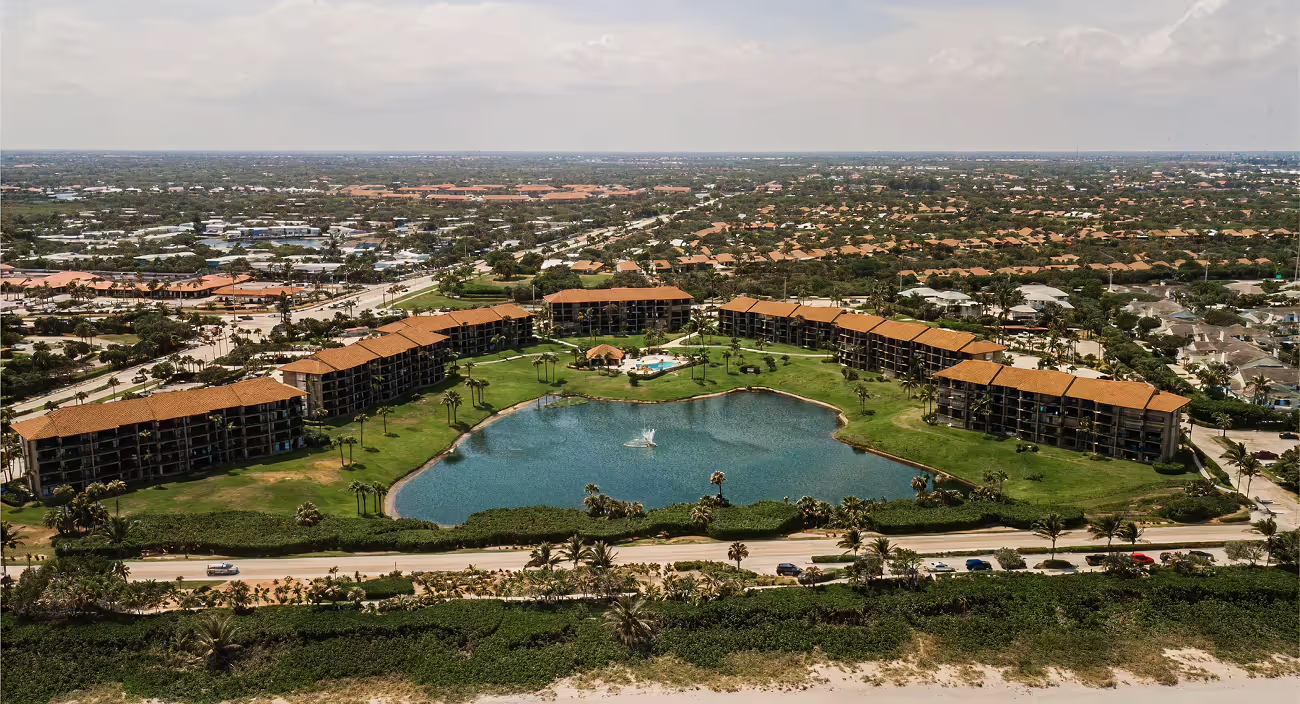
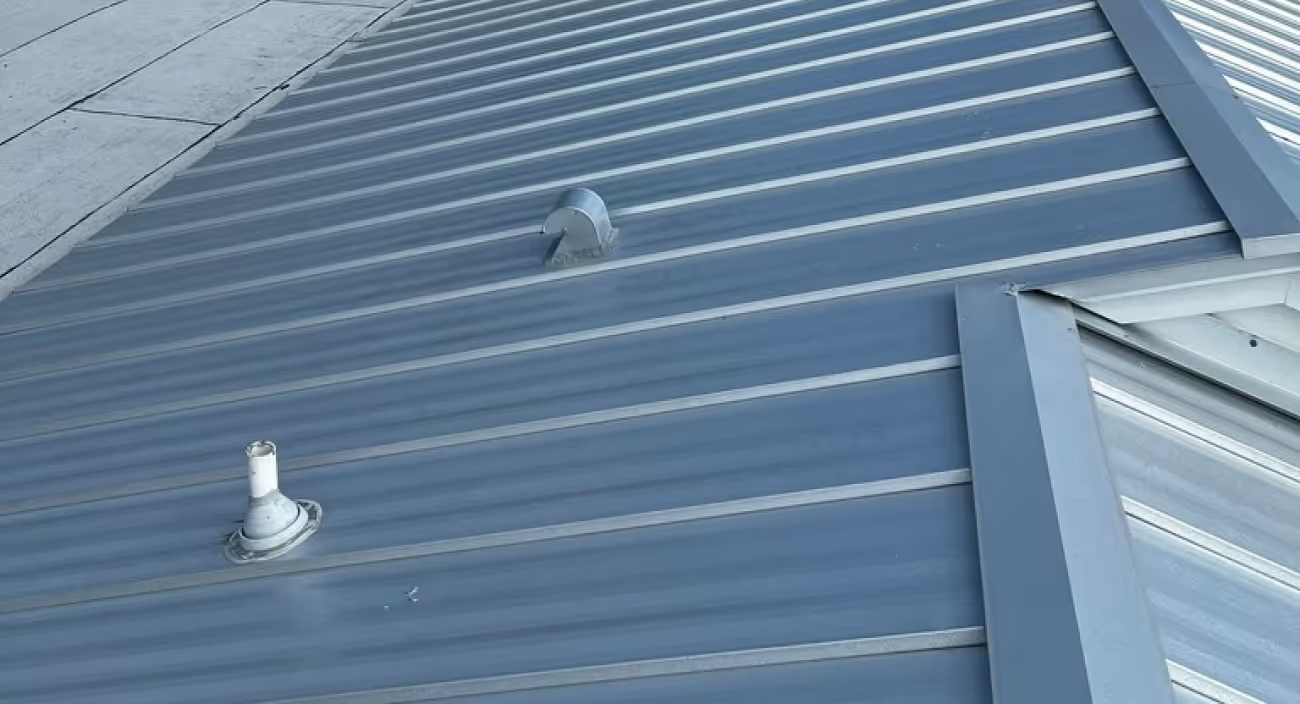
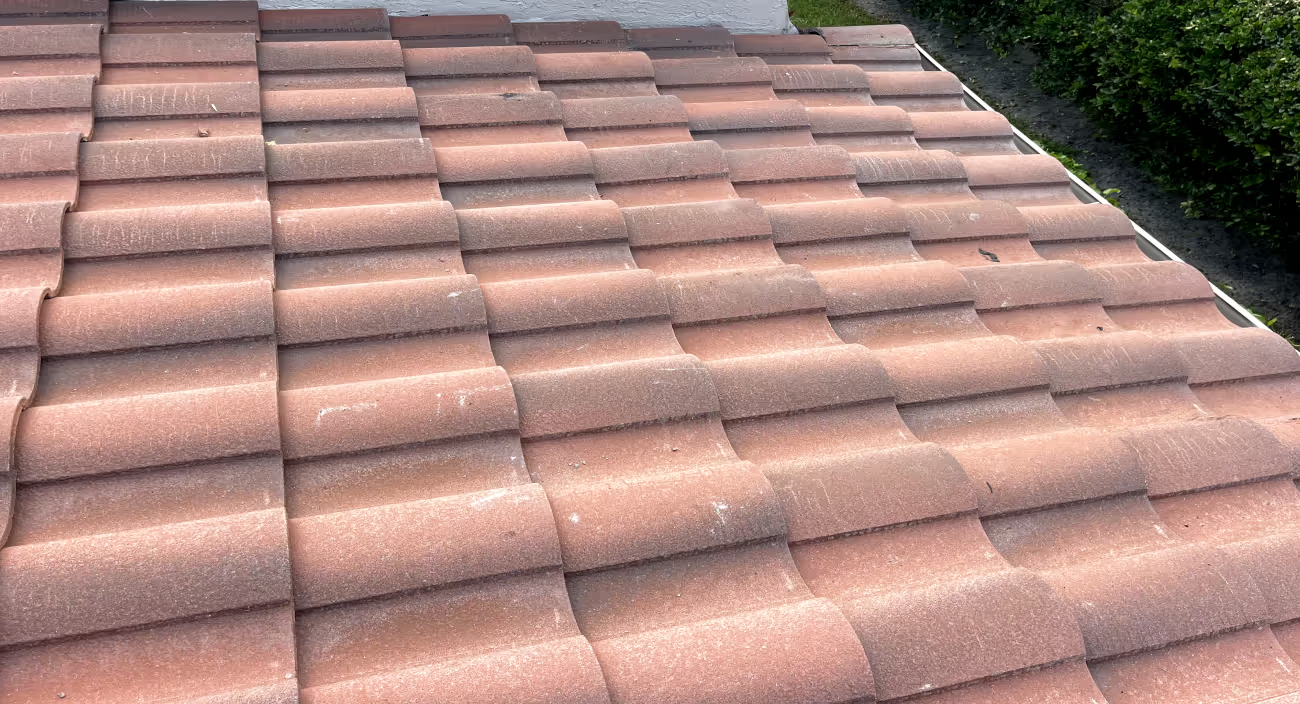
.avif)
